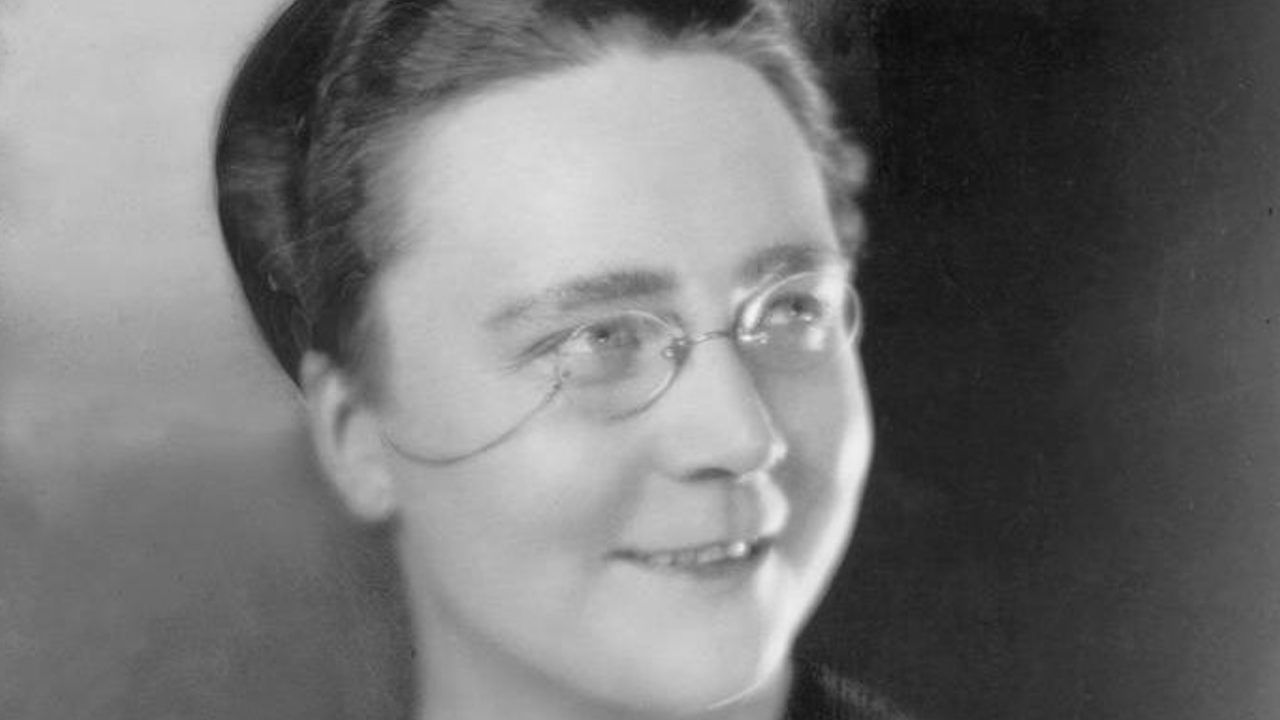A Brief Biography of Dorothy L. Sayers
by Alzina Stone Dale
Feast of St. Luke the Evangelist
Anno Domini 2023, October 18

A brief summary of her life may help those who have not read any of the biographies. Born the only child of the Reverend Henry and Helen Mary Sayers in her beloved Oxford, she was four when her family moved to the Fens. While both parents early recognized her intelligence, it was her mother who not only was determined that Dorothy should have a university education but encouraged her to become a professional writer.
It was at Oxford University’s Somerville College that she made the friends and established the pattern of her working life, for Sayers was not a solitary journal keeper but a letter writer who shared her work in progress with all interested friends, eagerly enlisting them in any current project. C. S. Lewis jokingly wrote her that if her letters were ever published she might find that her true fame rested upon them, not her published books. This has not happened yet because there are so many of them: over 30,000 pages in the Wade Center Collection alone. But in them you can hear the unmistakable voice, half poetic, half amused, describing the world about her with a discerning if tolerant eye, and the realistic details that created the ambience she called “particularity,” the characteristic that has made her mysteries, firmly set in time and place, such excellent social history.
Dorothy later described herself as a child as a little prig, but she always showed her redeeming grace—a lively sense of humor. Despite an adult life with truly serious problems, including serving as the chief support for her illegitimate son as well as her “war-wounded” husband, Sayers maintained her energetic and enthusiastic manner, refusing to become a pessimist even when World War II, for which she and her generation felt responsible, broke out. Her innate sense of values, based upon the fundamental assumption of Western civilization, were so much a part of her that, in talking about her as an artistic role model, each of the contributors to this book [Dorothy L. Sayers: The Centenary Celebration] ends by discussing her philosophical point of view.
Out of college Sayers taught, tried publishing, then took a copywriting job in London about the time her first mystery, Whose Body?, appeared in print. Lord Peter Wimsey, created to be her breadwinner, did so nobly. But as she became better known and got her toe inside the stage door, where everyone was a comrade in arms working toward a common goal, her desire to keep churning out a mystery or two each year flagged. Her interest in the Wimseys themselves never ended, but she kept them for her spare time and close friencd, as she, thanks to World War II, became more and more involved in war work. She began to write plays on more obviously religious themes, particularly her magnificent cycle on the life of Christ, which made Him real to the mid-twentieth century. This was followed finally by her great gift to the postwar world, her lively translation of Dante. His work (and personality) fit her own so very well that her friend Barbara Reynolds argues convincingly that it was Dante the writer, not Lord Peter, the fictional lord, who was her ideal man.
When Sayers died suddenly of a stroke on December 17, 1957, she left Paradise unfinished, to be completed by Barbara Reynolds, the latest in the long list of Sayers’s devoted friends.
*Originally published in Alzina Stone Dale, ed., Dorothy L. Sayers: The Centenary Celebration (iUniverse, Inc., 2005), pp. 151-152.
Contribute to Cultural Renewal by Sharing on Your Preferred Platform
In an isolating secularized culture where the Church's voice is muffled through her many divisions, Christians need all the help they can get to strengthen their faith in God and love toward their neighbor. Eighth Day Institute offers hope to all Christians through our adherence to the Nicene faith, our ecumenical dialogues of love and truth, and our many events and publications to strengthen faith, grow in wisdom, and foster Christian friendships of love. Will you join us in our efforts to renew soul & city? Donate today and join the community of Eighth Day Members who are working together to renew culture through faith & learning.









